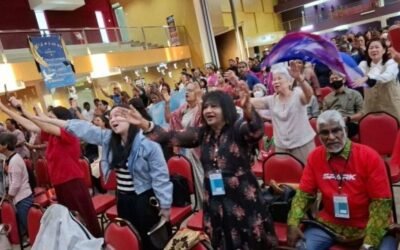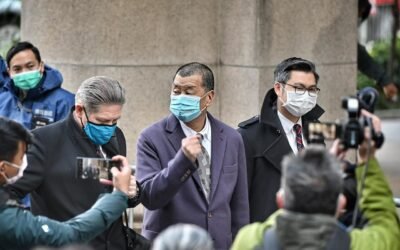Xinjiang authorities arrested Dilshat Oralbai in early 2018, along with his two sisters and a brother. Activists and families are fighting for their release.

Dilshat Oralbai and his brother and sisters.
Bitter Winter has reported on the fate of the ethnic Kazakh Muslim minority in Xinjiang where, according to some calculations, about 10,000 Kazakhs are detained in transformation through education camps. The hopes of the detained to be heard have been crushed even more when on March 10, Kazakh authorities detained and put under house arrest Serikzhan Bilash, the leader of the Kazakh NGO Atajurt that has been denouncing the mistreatment and torture of people in the camps of Xinjiang. Bilash’s arrest came right after he had published through Atajurt about the arrest of Dilshat Oralbai.
Azat Erkin is an activist from Kazakhstan who helps ethnic Kazakhs migrating from China to search for their detained relatives and to publicize to the outside world the plight of victims. He told Bitter Winter that Dilshat Oralbai, from Xinjiang’s Kuitun city (Chinese passport number: G30141360), was arrested in early 2018 and sent to a camp.
According to Mr. Erkin, Oralbai was born on July 22, 1962, and is a renowned intellectual. Since graduating from university in 1985, he has worked for Ili Daily News, the Ili Prefecture Political Association, and Kuitun Daily News, serving as a journalist, writer, translator, editor-in-chief of literature, and other positions. For 23 years, until 2008, he translated 15 works of literature, such as Jules Verne’s In Search of the Castaways, and more than 30 short stories as well as three TV series. More than 10 of his articles have received multiple awards in the Xinjiang region.

Dilshat Oralbai’s ID Card.
After 2008, Oralbai moved to Kazakhstan to start a business. He established a factory that makes plastic window frames and doors.
In August 2016, Chen Quanguo, the former secretary of the Party committee of the Tibet autonomous region, was transferred to Xinjiang to serve as the region’s top leader, where he tightened the government’s control over the region. Ethnic Uyghur and Kazakh Chinese citizens living overseas, including students, were summoned back to Xinjiang in large numbers.
This was the beginning of Oralbai’s nightmare: He was summoned home along with many other Kazakhs. After his return to China, the local government confiscated his passport and restricted his right to travel.
One of Oralbai’s family members who currently resides in Kazakhstan confirmed that in 2018, Oralbai was detained in a transformation through education camp.
One of Oralbai’s sisters, Baktgul Oralbaikizi, was born on May 10, 1977 (ID card number 65400119770510142X). She was formerly a reporter for Kuitun Daily News. His other sister, Bagila Oralbaikizi, was born in 1982. She owned a barbershop for more than ten years. In early 2018, both sisters were arrested, and have not been heard from since.
Oralbai’s brother, Jurat Oralbai, lives in Yining county in the Ili prefecture of Xinjiang. He had worked at the local Agricultural Bank for more than 30 years and is now retired. This 60-year-old was detained in a transformation through education camp for almost one year. Since his health is poor, he has been released home temporarily.
Mr. Erkin said that Oralbai and his siblings are all innocent. They have broken no laws. All of them speak and write Chinese, and they have their own businesses. The Chinese government has no reason to detain them or to deprive them of the right to live freely.
He is calling on the United Nations Human Rights Council and national leaders to help them so that they can reunite with their families as soon as possible.
Reported by Li Pei

Uses a pseudonym for security reasons.



